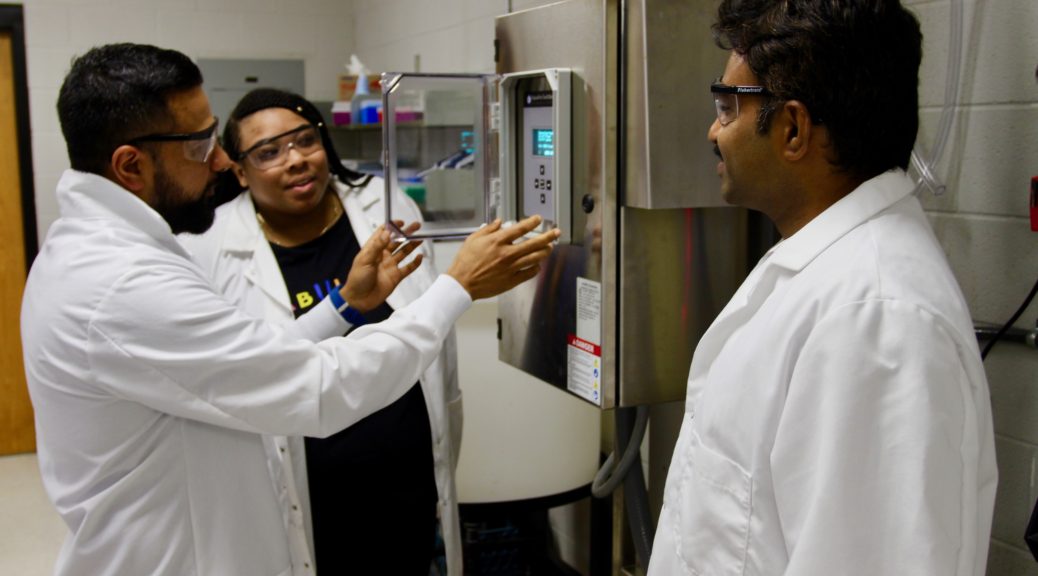By JOAN KITE
NASHVILLE, Tenn. (TSU News Service) — Tennessee State University professor Dr. Ankit Patras has received two grants totaling $650,000 from the USDA National Institute of Food and Agriculture, Trojan Technologies of Canada, and California-based Aquafine Corporation. The grants will fund research to make food safer by eliminating harmful viruses and bacterial endospores in juices and other beverages.
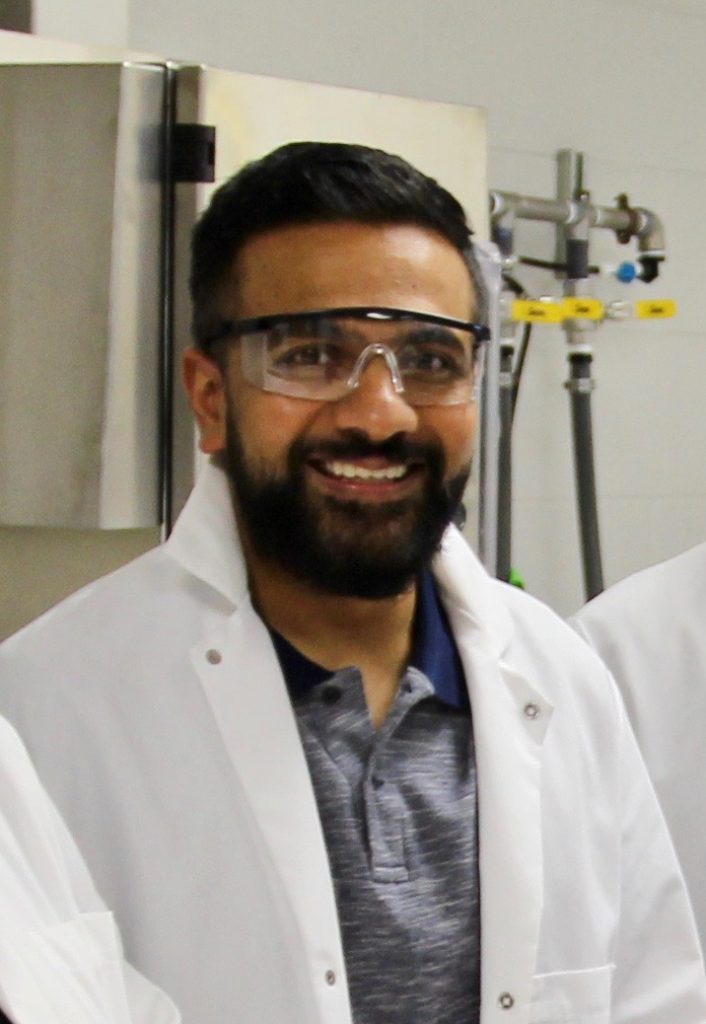
In the NIFA grant, Patras, as principal investigator, and his research team at TSU, including Dr. Agnes Kilonzo-Nthenge and Dr. John Rickettes, are collaborating with researchers at the University of Tennessee, and the Institute of Food Safety and Health at the Illinois Institute of Technology. Together, Patras and his fellow researchers will study the effect of highly energetic photons at 253.7 nm wavelength for the inactivation of viral particles, bacterial spores, and mycotoxins.
Dr. Chandra Reddy, dean of the College of Agriculture, said TSU is glad to partner with USDA and private industry in a research project that is aimed to make food safe for consumers without worrying about bacterial or viral contamination and illnesses.
“Dr. Patras is one of the national leaders in this area of research and he and his team are exploring some novel ways to contain or eliminate bacteria and viruses in foods through these grants,” Reddy said. “As our new Food Science building comes online in a year or so, we will intensify the food science research at TSU.”
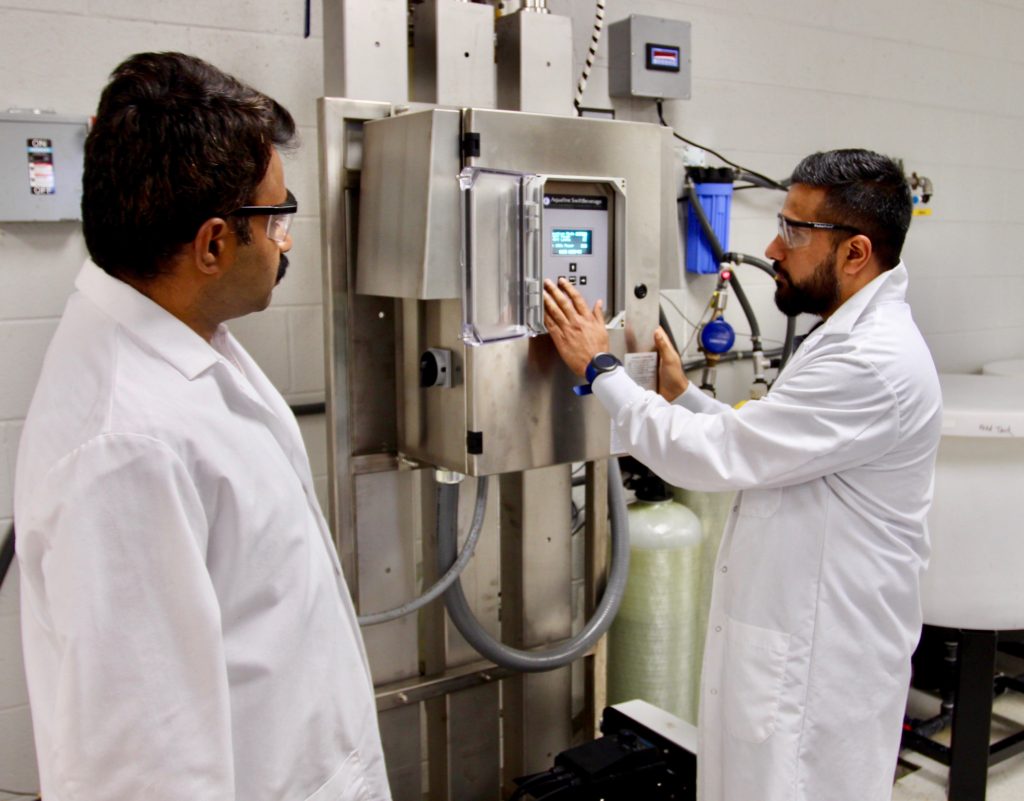
According to Patras, who is research assistant professor of agricultural science, the ultimate goal of this project is to develop new and improved non-thermal technologies to inactivate viruses and bacterial endospores. He said one of the unique aspects of the project is the use of novel approaches for ensuring uniform UV exposure to bacterial and viral particles in fluids, without any arbitrary fluence rate distribution and uncertainty in the delivered UV fluence within the UV systems.
“Another important aspect of the study is to create science-based knowledge and bridge existing knowledge gaps by assessing the sensitivity of target foodborne viruses and spores to this treatment,” Patras said. “We want to identify markers of oxidative stress, which can be correlated to microbial inactivation.”
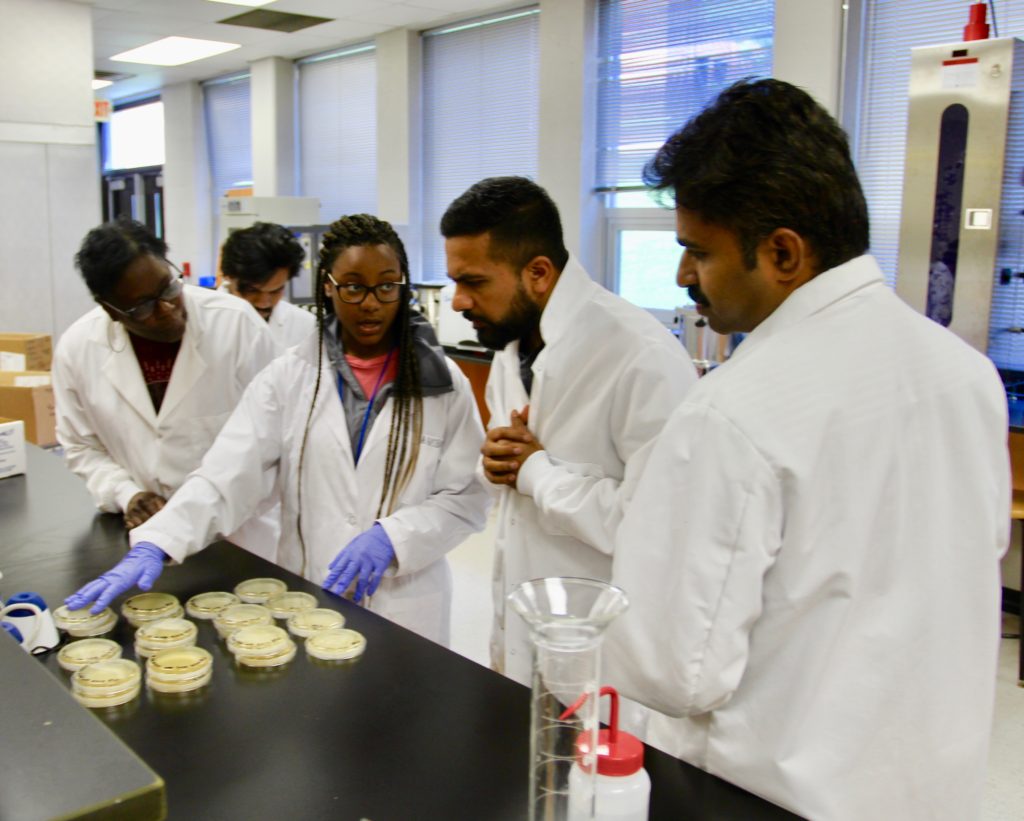
The team will develop chemical and biological sensors (biodosimeters) to quantify the UV dose delivered to pathogenic targets ensuring accurate dose delivery. The overall integrated approach will generate fundamental knowledge on the inactivation of viruses and bacterial spores on bench and commercial UV systems. Members of federal agencies including USDA-ARS, US-FDA, and Agriculture and Agri-Food Canada are on the advisory board. Patras’s grant is one of the few awarded by the AFRI Foundation and Applied Science Program in the U.S. Department of Agriculture.
Among Patras’ team at TSU is Taylor Ribeiro, a third-year Ph.D. student in biological sciences, who is working on the inactivation of bacterial in blue berry-flavored functional beverage. She said it feels good to be working with something that’s in the forefront of technology because “current pasteurization methods are starting to fail us.”
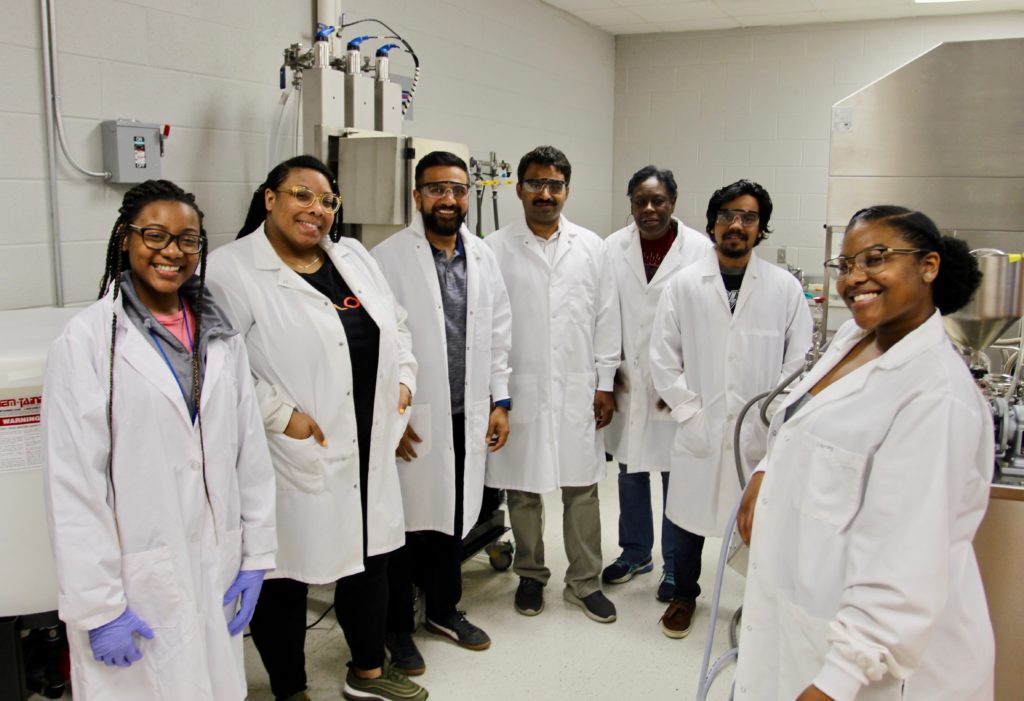
“We are starting to see outbreaks left and right. So, to be at the forefront of something that is going to be global pretty soon is a big deal for me,” said Ribeiro, who is from Chesapeake, Virginia. “I am enjoying it. I enjoy working with Dr. Petras and the rest of the team.”
In the second grant, Patras and Co-PI Dr. Hongwei Si will evaluate the cytotoxicity of irradiated liquid foods. Cytotoxicity of irradiated liquid foods must be evaluated to ensure the novel food processing techniques do not produce cytotoxic chemical compounds.
UV photons can break chemical bonds and could result in modifying compounds in foods. UV disinfection itself is the result of forming dimers (bonds) between adjacent pyrimidines in the nucleic acids of bacteria and viruses. The team aims to evaluate the cytotoxicity against normal colon, blood cells and study the protein expression of these cells. Experiments will be conducted mimicking the human gastric system.
For more information on TSU’s College Agriculture, go to http://www.tnstate.edu/agriculture/
Department of Media Relations
Tennessee State University
3500 John Merritt Boulevard
Nashville, Tennessee 37209
615.963.5331
About Tennessee State University
Founded in 1912, Tennessee State University is Nashville’s only public university, and is a premier, historically black university and land-grant institution offering 38 bachelor’s degree programs, 24 master’s degree programs, and seven doctoral degrees. TSU is a comprehensive research intensive institution with a R-2 Carnegie designation, and has a graduate school on its downtown Avon Williams Campus, along with the Otis Floyd Nursery Research Center in McMinnville, Tennessee. With a commitment to excellence, Tennessee State University provides students with a quality education in a nurturing and innovative environment that prepares them as alumni to be global leaders in every facet of society. Visit the University online at tnstate.edu.
